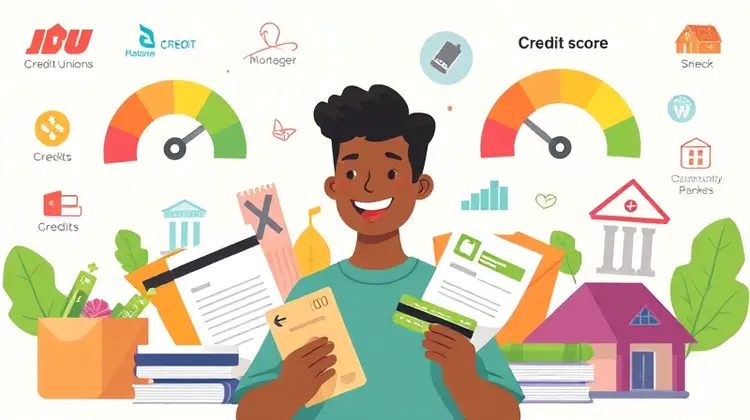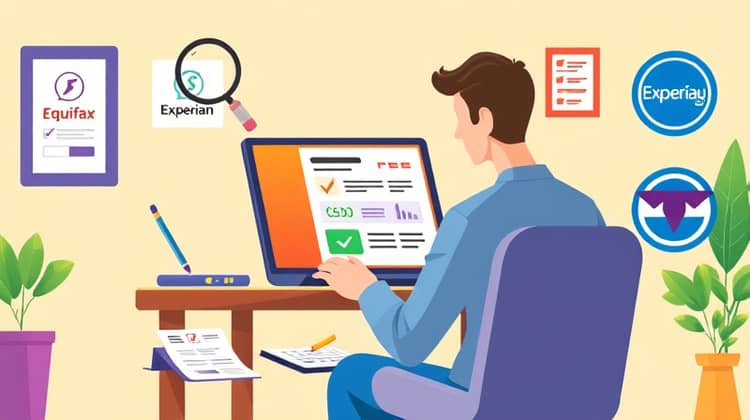In today's financial landscape, having a good credit score is essential. It can open doors to better interest rates on loans, increase your chances of approval for credit cards, and even impact your ability to rent an apartment or get a job. While there are many factors that influence your credit score, knowing how to manage your credit cards effectively can lead to significant improvements.
This blog post will explore the top five ways to improve your credit score with credit cards. By following these strategies, you can enhance your creditworthiness and achieve your financial goals faster. Let's dive in!
1. Pay Your Bills on Time

One of the most critical factors affecting your credit score is your payment history. Late payments can have a severe impact, causing your credit score to drop significantly. By making it a priority to pay your bills on time, you can maintain a healthy credit score and demonstrate your reliability to lenders.
Setting up reminders or automatic payments can help ensure that you never miss a due date. Consistently paying your bills on time not only boosts your credit score but also fosters responsible financial behavior.
- Set up automatic payments to avoid late fees.
- Create calendar reminders for payment due dates.
- Consider using budgeting tools to track due dates.
By ensuring timely payments, you reflect positively on your credit report. Any missed payment can stay on your record for up to seven years, which can significantly hinder your ability to secure credit in the future.
Establishing good habits early on will help you cultivate a strong credit history and a robust credit score over time.
2. Keep Your Credit Utilization Low

Credit utilization is simply the ratio of your current credit card balances to your total credit limit. It's advisable to keep this ratio below 30%. This practice not only helps maintain a good credit score but also indicates that you are managing your credit wisely.
- Try to pay down existing debt on your credit cards.
- Avoid maxing out your credit limit at any given time.
- Consider requesting a credit limit increase to improve your utilization ratio.
Keeping your credit utilization low shows lenders that you are not overly reliant on credit. It’s a crucial factor in the calculation of your credit score, making it an effective target for improving your credit health.
3. Don’t Close Old Credit Cards

The length of your credit history also plays an essential role in your credit score. Closing old credit cards can drastically reduce your average account age, which can have a detrimental effect. Keeping these accounts open—even if you don't use them often—shows lenders that you have a longstanding credit history.
Moreover, old credit accounts contribute to your total credit limit, lowering your overall utilization ratio.
- Consider keeping old credit cards open to benefit from longer credit history.
- If you have multiple cards with no annual fee, keep them active by using them occasionally.
- Review any inactive accounts regularly to assess if they should be retained.
In summary, retaining old credit accounts can be advantageous for your credit score, so think twice before closing them. Keeping them open as part of a well-balanced credit profile is often a better approach than closing them outright.
4. Diversify Your Credit

Having a mix of credit types—like installment loans (car loans, mortgages) and revolving credit (credit cards)—can benefit your credit score. Lenders prefer to see that you can manage various types of credit responsibly, which reflects your overall creditworthiness.
Diversification shows that you can handle credit responsibly, thus potentially improving your credit score over time. Make sure to use different types of credit to create a healthy mix.
- Consider a small personal loan to diversify your credit types.
- Using a mix of revolving and installment credit can boost your score.
- Visit credit unions or community banks for potential credit products to diversify.
5. Regularly Check Your Credit Report

Monitoring your credit report is crucial for maintaining a good credit score. It allows you to ensure that all the information is accurate and up-to-date. Mistakes can happen, and they can negatively impact your credit score if left unaddressed.
You are entitled to a free credit report from each of the major credit bureaus once a year, which you should take advantage of.
- Check your credit reports from all three major bureaus: Equifax, Experian, and TransUnion.
- Look for errors that could be dragging your score down.
- Use credit monitoring services to stay up to date on your credit activity.
By regularly reviewing your credit report, you can identify areas for improvement and rectify any issues that arise. This proactive approach is vital for sustaining a healthy credit score and identifying opportunities for enhancement.
Conclusion

Improving your credit score is an ongoing process, and using credit cards effectively plays a significant role. By implementing the strategies discussed, from paying bills on time to keeping old accounts open, you can work your way toward a better credit score. Remember, patience and consistency are key components to achieving your financial goals.
With diligence and smart financial management, you can build a strong credit history that will serve you well in obtaining loans, mortgages, and credit lines in the future.














